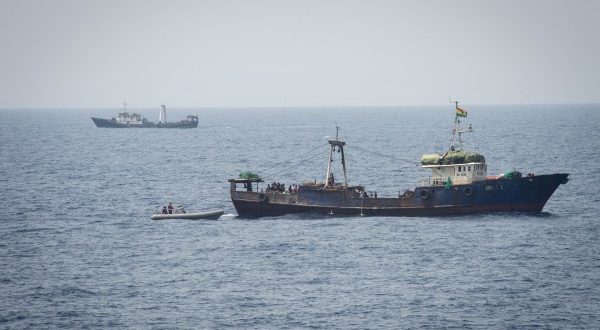The Ghana Industrial Trawlers Association (GITA) has discredited the research conducted by a UK-based non-governmental organization – Environmental Justice Foundation – suggesting that Ghana loses between US$14 million and 23 million dollars annually in the trawl sector.
The Foundation attributed the revenue losses to low licence fees in the sector as well as the poor punitive regime for fisheries-related infringements.
In the report, it also emerged that nine out of every 10 fishing trawlers operating in Ghana are beneficially owned by persons from China.
But Acting President of GITA, Peter Stephen Adjokatcher in reacting to the research report disagreed with the outcome.
He stated that the vessels are owned by Ghanaians and advised the researchers to engage industry players thoroughly before coming up with such findings.
“When people put out English like this, they just put dust into the whole public domain. People will think the Chinese are running issues here but all the fish being discharged are bought by the women who run the whole fisheries port. While putting the research together, if they are having difficulties, they definitely have to come to the industry players.”
“We handle and own the vessels, if you don’t come to us and supposedly find something to write, are you doing the country any good? The country is not making any losses here. All the trawlers you find here are owned by Ghanaians not Chinese. The Chinese are only the captains of the vessels because we don’t have a single Ghanaian vessel here”, he added.
Earlier, the Fisheries Programmes Manager of the Environmental Justice Foundation, Socrates Segbor, in an interview with Citi News said, the government needs to address fronting for foreign trawl companies by locals.
“We could potentially be generating about $14.4 million annually if we were targeting this beneficial ownership. If we were targetting the beneficial owners, then the right amount of fine imposed, if the vessel is forced to pay such penalties after investigations have confirmed that indeed they have committed this crime, that will be deterrent enough to prevent others from indulging in such illegalities or irresponsible fishing practices. This will subsequently be helping to reduce the overall irresponsible fishing practices that are happening across the various sectors of the marine fishing sector.”











